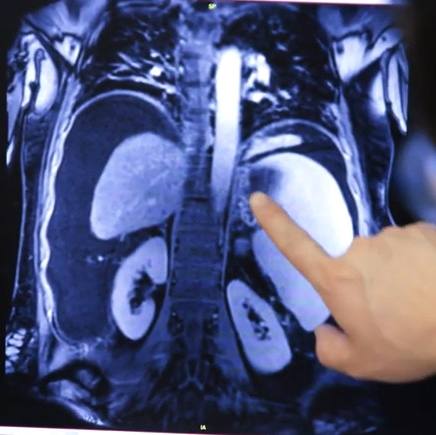-
Anticoagulant Risk Explored
Internal bleeding is a major concern for patients who need blood-thinning medication to reduce the risk of a stroke. A recent study, published in the journal Gastroenterology, which compares this side effect among similar drugs, called anticoagulants, aims to help patients and their doctors make a more informed decision.
“Gastrointestinal bleeding is a significant source of drug complications among patients taking anticoagulation and is one of the key issues to consider when assessing the risk-benefit trade-offs,” says Neena S. Abraham, M.D., a gastroenterologist and health sciences researcher at Mayo Clinic and the study’s lead author. “Our results provide clinicians with a way to directly compare these newer medications.”

Mayo Clinic researchers have found that one direct oral anticoagulant (DOAC) drug has significantly less risk of causing gastrointestinal (GI) bleeding for people with an irregular heartbeat related to factors other than heart valve irregularities. In these patients, the study reports that among three widely-used medications, apixaban has the lowest rate of GI bleeding at all age levels. Patients using apixaban were 61 percent less likely to report GI bleeding then those on dabigatran, the study finds, and dabigatran was 20 percent less likely to cause bleeding than rivaroxaban.
The researchers, using the OptumLabs Data Warehouse, also conclude that the risk of GI bleeding is greatest among people 75 and older. For that group, the drug warfarin may be a better choice than the medications tested, according to a previous Mayo Clinic study.
Warfarin reduces the body’s ability to form blood clots by working against vitamin K. DOACs — which unlike warfarin don’t require ongoing blood tests — are also known as non-Vitamin K antagonist oral anticoagulants, or NOACs. (Read more about the differences between warfarin and NOACs.)
For patients with atrial fibrillations, the DOACs also appear to be as successful as warfarin in preventing stroke and systemic embolisms, the other Mayo Clinic study finds. However, other trials, reviews and studies have shown the risk of bleeding is 25 to 30 percent greater with DOACs, the study mentions.
“In this paper, we find that apixaban may be the preferred agent among DOACs when GI bleeding is an important consideration in guiding treatment decisions,” says Dr. Abraham. “This is true across all age groups, but is especially important among those over the age of 75 where the risk of GI bleeding is generally much greater.”
The researchers report that their study didn’t include a fourth FDA approved DOAC, edoxaban, because there were not enough patients using it to compare with the other medications.
Dr. Abraham is center site director in Arizona of the Mayo Clinic Robert D. and Patricia E. Kern Center for the Science of Health Care Delivery.
- Adam Harringa, January 30, 2017







